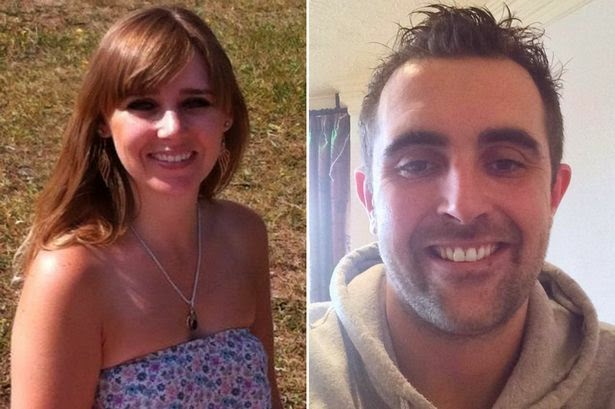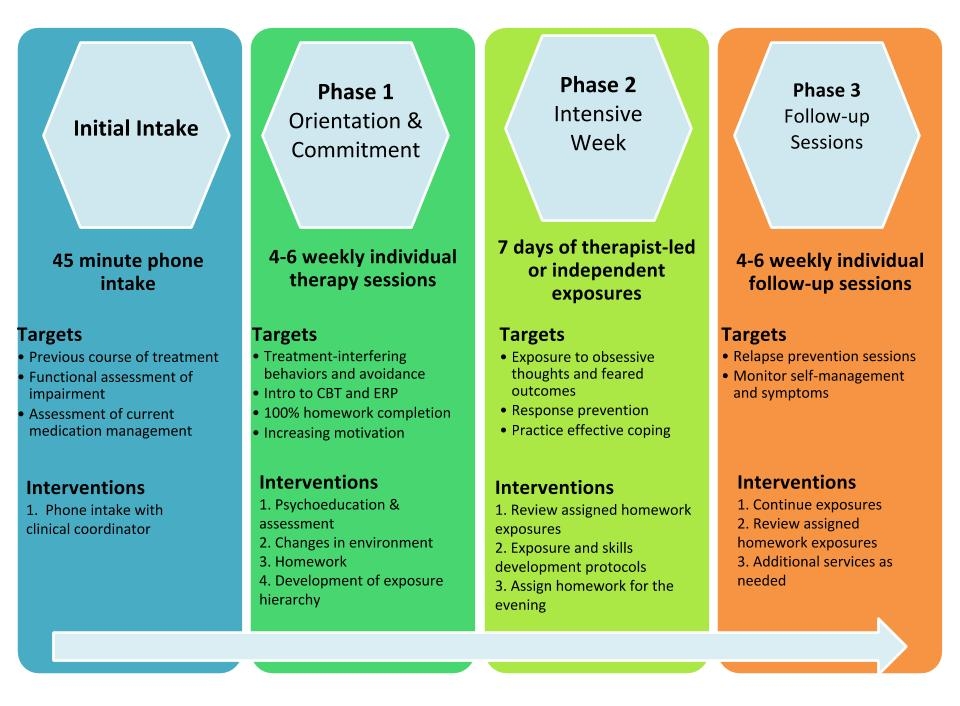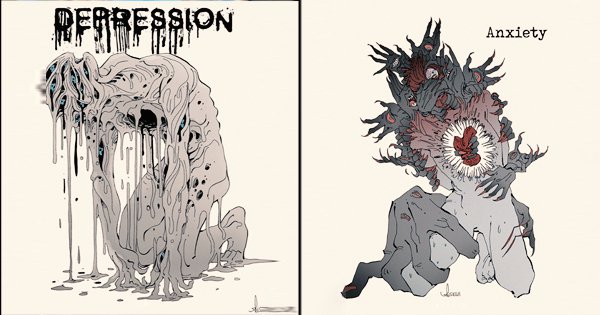Am i on the autistic spectrum quiz
Online Test for Adult Autism
Share this page
Question 1
I prefer to do things on my own, rather than with others.
- Definitely Agree
- Slightly Agree
- Slightly disagree
- Definitely disagree
Question 2
I prefer doing things the same way - for instance my morning routine or trip to the supermarket
- Definitely Agree
- Slightly Agree
- Slightly disagree
- Definitely disagree
Question 3
I find myself becoming strongly absorbed in something – even obsessional
- Definitely Agree
- Slightly Agree
- Slightly disagree
- Definitely disagree
Question 4
I am very sensitive to noise and will wear earplugs or cover my ears in certain situations
- Definitely Agree
- Slightly Agree
- Slightly disagree
- Definitely disagree
Question 5
Sometimes people say I am being rude, even though I think I am being polite.
- Definitely Agree
- Slightly Agree
- Slightly disagree
- Definitely disagree
Question 6
I find it easy to imagine what characters from a book might look like.
- Definitely Agree
- Slightly Agree
- Slightly disagree
- Definitely disagree
Question 7
I find it easy to talk in groups of people
- Definitely Agree
- Slightly Agree
- Slightly disagree
- Definitely disagree
Question 8
I am more interested in finding out about ‘things’ than people
- Definitely Agree
- Slightly Agree
- Slightly disagree
- Definitely disagree
Question 9
I find numbers, dates and strings of information fascinating
- Definitely Agree
- Slightly Agree
- Slightly disagree
- Definitely disagree
Question 10
I prefer non-fiction books and films to fiction
- Definitely Agree
- Slightly Agree
- Slightly disagree
- Definitely disagree
Question 11
I find it upsetting if my daily routine is upset or changed
- Definitely Agree
- Slightly Agree
- Slightly disagree
- Definitely disagree
Question 12
It’s difficult for me to understand other people’s facial expression and body language
- Definitely Agree
- Slightly Agree
- Slightly disagree
- Definitely disagree
Question 13
I don’t have any problems making small talk with new people
- Definitely Agree
- Slightly Agree
- Slightly disagree
- Definitely disagree
Question 14
I notice very small changes in a person’s appearance
- Definitely Agree
- Slightly Agree
- Slightly disagree
- Definitely disagree
Question 15
When I was young I used to play lots of ‘let’s pretend’ or imaginary games
- Definitely Agree
- Slightly Agree
- Slightly disagree
- Definitely disagree
Question 16
I like collecting information about things I am interested in
- Definitely Agree
- Slightly Agree
- Slightly disagree
- Definitely disagree
Question 17
I like meeting new people
- Definitely Agree
- Slightly Agree
- Slightly disagree
- Definitely disagree
Question 18
People close to me say I talk about the same things repeatedly
- Definitely Agree
- Slightly Agree
- Slightly disagree
- Definitely disagree
Question 19
I find it easy to work out what people are thinking or feeling just by looking at their facial expressions
- Definitely Agree
- Slightly Agree
- Slightly disagree
- Definitely disagree
Question 20
New social situations make me feel anxious
- Definitely Agree
- Slightly Agree
- Slightly disagree
- Definitely disagree
Question 21
It’s important to me to carefully plan any activities I am going to do
- Definitely Agree
- Slightly Agree
- Slightly disagree
- Definitely disagree
Question 22
I find it hard to work out what people’s intentions are
- Definitely Agree
- Slightly Agree
- Slightly disagree
- Definitely disagree
Question 23
I would find it really hard to play imaginary games with children
- Definitely Agree
- Slightly Agree
- Slightly disagree
- Definitely disagree
Question 24
I am a good diplomat and can help ease difficult social or work situations
- Definitely Agree
- Slightly Agree
- Slightly disagree
- Definitely disagree
Question 25
I am often the last person to understand a joke
- Definitely Agree
- Slightly Agree
- Slightly disagree
- Definitely disagree
Question 26
I like doing things spontaneously
- Definitely Agree
- Slightly Agree
- Slightly disagree
- Definitely disagree
Question 27
If I am interrupted doing something I find it hard to get back to what I was doing before hand
- Definitely Agree
- Slightly Agree
- Slightly disagree
- Definitely disagree
Question 28
I notice patterns in things all the time
- Definitely Agree
- Slightly Agree
- Slightly disagree
- Definitely disagree
Question 29
I have some very strong interests and get upset if I can’t pursue them
- Definitely Agree
- Slightly Agree
- Slightly disagree
- Definitely disagree
Question 30
I can tell if someone I am talking to is getting bored
- Definitely Agree
- Slightly Agree
- Slightly disagree
- Definitely disagree
Question 1 of 30
When answering the above questions please consider how much the statements apply to you.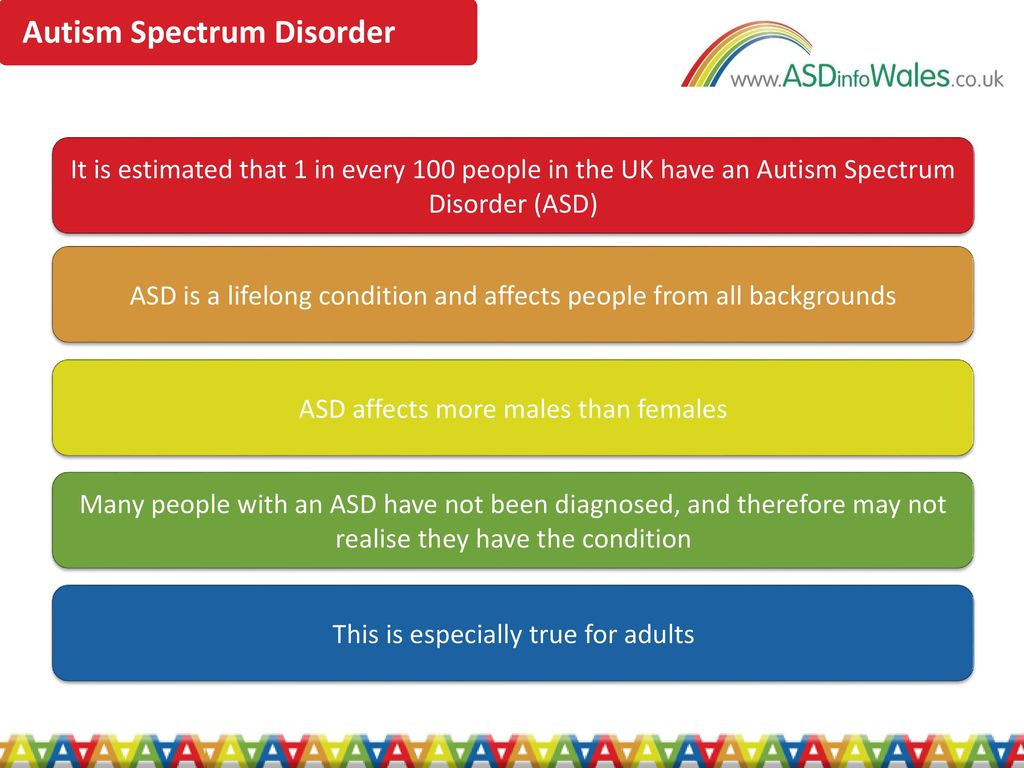
The above 30 questions may be useful to understand if you are experiencing some of the common behaviours and thoughts associated with being on the Autistic Spectrum. The questions are based on an evidence-based screening tool – the Autism Spectrum Quotient – but are indicative only and do not form a formal diagnosis.
References: S. Baron-Cohen, S. Wheelwright, R. Skinner, J. Martin and E. Clubley, (2001) The Autism Spectrum Quotient (AQ) : Evidence from Asperger Syndrome/High Functioning Autism, Males and Females, Scientists and Mathematicians Journal of Autism and Developmental Disorders 31:5-17
Need to talk:
0203 326 9160 0203 326 9160
Speak with a member of our friendly staff in complete confidence and arrange a consultation, either face-to-face or online.
Take another test
View all tests
We have online mental health quizzes for many conditions including ADHD, autism, anxiety, depression, PTSD, and more. Each one should take no longer than five minutes.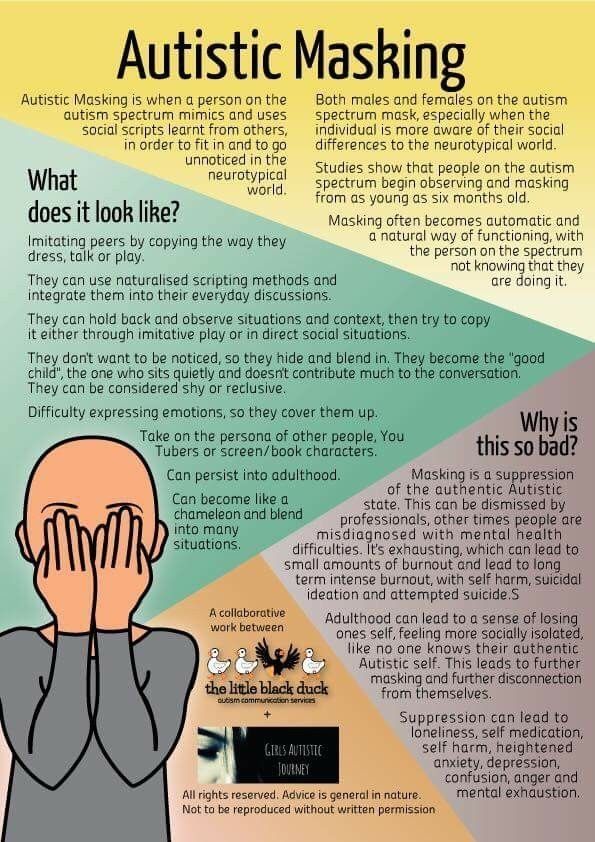
Autism Quiz: Do I Have Autism?
Autism Quiz: Do I Have Autism? | Psych Central- Conditions
- Featured
- Addictions
- Anxiety Disorder
- ADHD
- Bipolar Disorder
- Depression
- PTSD
- Schizophrenia
- Articles
- Adjustment Disorder
- Agoraphobia
- Borderline Personality Disorder
- Childhood ADHD
- Dissociative Identity Disorder
- Narcissistic Personality Disorder
- Narcolepsy
- Oppositional Defiant Disorder
- Panic Attack
- Postpartum Depression
- Schizoaffective Disorder
- Seasonal Affective Disorder
- Sex Addiction
- Specific Phobias
- Teenage Depression
- Trauma
- Featured
- Discover
- Wellness Topics
- Black Mental Health
- Grief
- Emotional Health
- Sex & Relationships
- Trauma
- Understanding Therapy
- Workplace Mental Health
- Original Series
- My Life with OCD
- Caregivers Chronicles
- Empathy at Work
- Sex, Love & All of the Above
- Parent Central
- Mindful Moment
- News & Events
- Mental Health News
- COVID-19
- Live Town Hall: Mental Health in Focus
- Podcasts
- Inside Mental Health
- Inside Schizophrenia
- Inside Bipolar
- Wellness Topics
- Quizzes
- Conditions
- ADHD Symptoms Quiz
- Anxiety Symptoms Quiz
- Autism Quiz: Family & Friends
- Autism Symptoms Quiz
- Bipolar Disorder Quiz
- Borderline Personality Test
- Childhood ADHD Quiz
- Depression Symptoms Quiz
- Eating Disorder Quiz
- Narcissim Symptoms Test
- OCD Symptoms Quiz
- Psychopathy Test
- PTSD Symptoms Quiz
- Schizophrenia Quiz
- Lifestyle
- Attachment Style Quiz
- Career Test
- Do I Need Therapy Quiz?
- Domestic Violence Screening Quiz
- Emotional Type Quiz
- Loneliness Quiz
- Parenting Style Quiz
- Personality Test
- Relationship Quiz
- Stress Test
- What's Your Sleep Like?
- Conditions
- Resources
- Treatment & Support
- Find Support
- Suicide Prevention
- Drugs & Medications
- Find a Therapist
- Treatment & Support
Medically reviewed by Jeffrey Ditzell, DO — By Christina Ward — Updated on April 11, 2021
Autism spectrum disorder (ASD) is a neurodevelopmental disorder that affects the way a person thinks, behaves, and communicates.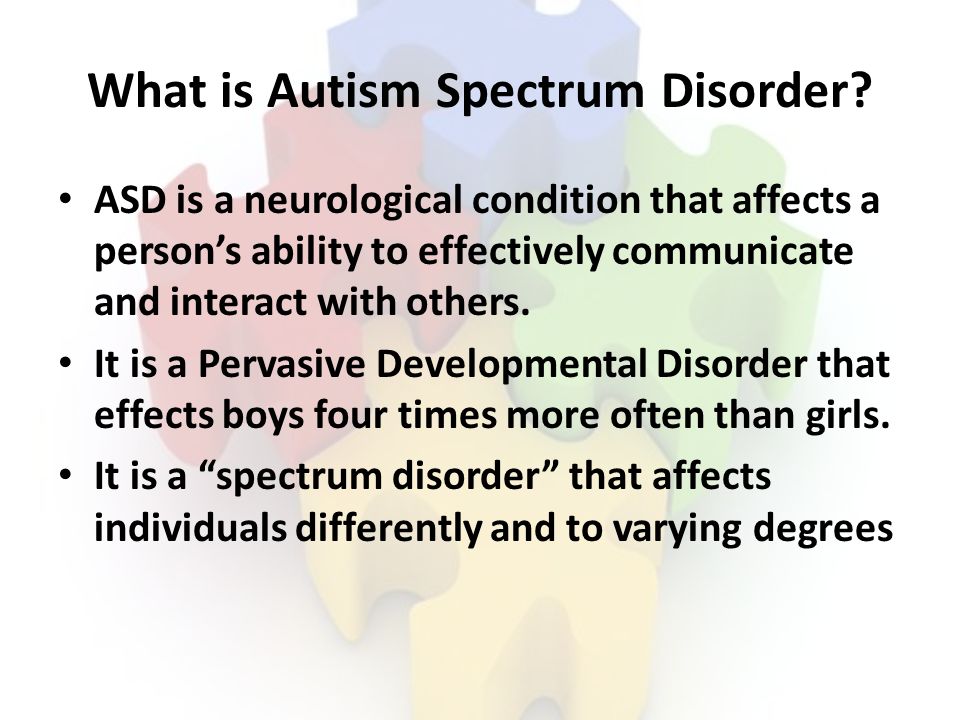
While children are typically screened for autism symptoms as early as 18 months, it can be diagnosed later in older children, adolescents, and even adults.
This brief, time-saving test is designed for anyone who thinks they might benefit from an autism screening or evaluation.
The items below will help you determine whether you may need an in-depth evaluation including screening tools, parental or family insight, and clinical observations.
A mental health professional can also help figure out if your symptoms might be a sign of another mental health condition and recommend treatment if needed.
This online screening is not a definitive tool. It will not conclusively guarantee that you have autism.
However, it will measure if you have any autism-related traits, based on your own self-assessment.
Only a trained medical professional, such as a doctor or mental health professional, can help you determine the next best steps for you.
This free autism quiz was adapted from the Autism Spectrum Screening Questionnaire (ASSQ) designed to screen for the possibility of autism spectrum disorder (ASD).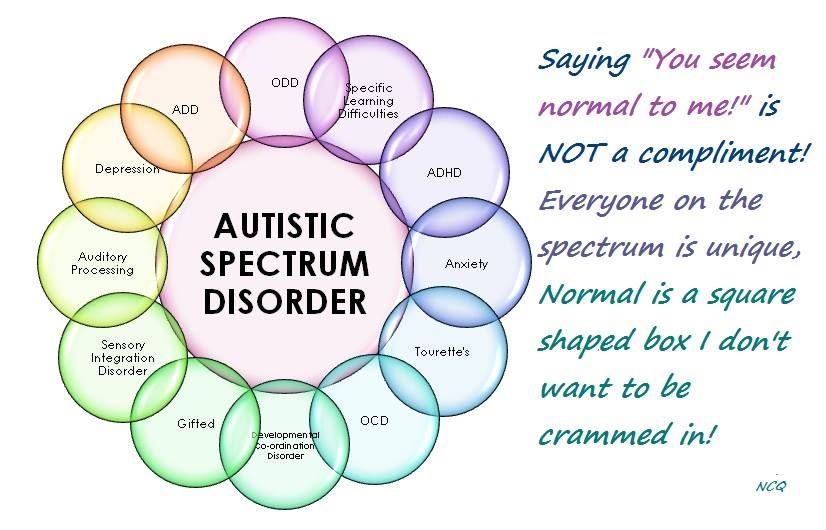 This is not a diagnostic tool and should be considered for personal use only. An accurate diagnosis can be made only through a clinical evaluation. If you think you might have ASD, consider speaking with a primary care doctor, psychiatrist or another mental health professional. They can perform a clinical evaluation that includes screening tools, parental or family insight, and clinical observations to arrive at the most accurate diagnosis.
This is not a diagnostic tool and should be considered for personal use only. An accurate diagnosis can be made only through a clinical evaluation. If you think you might have ASD, consider speaking with a primary care doctor, psychiatrist or another mental health professional. They can perform a clinical evaluation that includes screening tools, parental or family insight, and clinical observations to arrive at the most accurate diagnosis.
Instructions
The items below refer to your preferences and behaviors over the course of your life. For the results of this quiz to be most accurate, try to be as honest as possible in your responses.
This online screening is not a diagnostic tool. Only a trained medical professional, like a doctor or mental health professional, can help you determine the next best steps for you.
Ready to start therapy? Our Find a Therapist resource may help.
Last medically reviewed on April 11, 2021
5 sourcescollapsed
- Baron-Cohen B, et al.
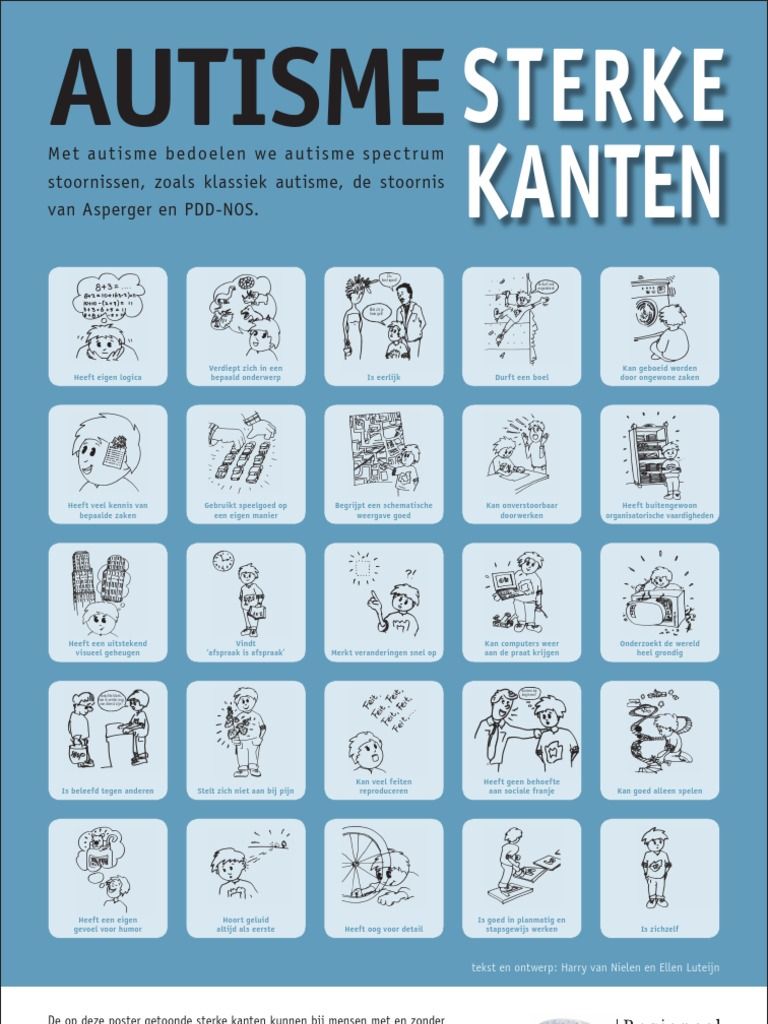 (2001). The autism-spectrum quotient (AQ): Evidence from Asperger syndrome/high-functioning autism, males and females, scientists and mathematicians.
(2001). The autism-spectrum quotient (AQ): Evidence from Asperger syndrome/high-functioning autism, males and females, scientists and mathematicians.
link.springer.com/article/10.1023%2FA%3A1005653411471 - Barrett SL, et al. (2015). The adult repetitive behaviours questionnaire-2 (RBQ-2A): A self-report measure of restricted and repetitive behaviours.
ncbi.nlm.nih.gov/pmc/articles/PMC4608982/ - Dell'Osso L, et al. (2017). Adult autism subthreshold spectrum (AdAS Spectrum): Validation of a questionnaire investigating subthreshold autism spectrum.
sciencedirect.com/science/article/abs/pii/S0010440X1630339X?via%3Dihub - Erikkson JM, et al. (2013). RAADS-14 Screen: Validity of a screening tool for autism spectrum disorder in an adult psychiatric population.
molecularautism.biomedcentral.com/articles/10.1186/2040-2392-4-49 - Woodbury-Smith MR, et al. (2005). Screening adults for Asperger Syndrome using the AQ: A preliminary study of its diagnostic validity in clinical practice.

link.springer.com/article/10.1007/s10803-005-3300-7
FEEDBACK:
Medically reviewed by Jeffrey Ditzell, DO — By Christina Ward — Updated on April 11, 2021
RELATED
What Are the Symptoms of Autism Spectrum Disorder?
What Disorders Are Related to Autism?
Growing Up Autistic: How Do I Make the Leap to Adulthood?
Asperger’s vs. Autism: What Exactly Is the Difference?
How Is Autism Diagnosed?
Read this next
What Are the Symptoms of Autism Spectrum Disorder?
Medically reviewed by Timothy J. Legg, PhD, PsyD, CRNP, ACRN, CPH
Autism symptoms are actually differences in sensory, communication, and behavior patterns. Here's why.
READ MORE
What Disorders Are Related to Autism?
Medically reviewed by Nathan Greene, PsyD
If you're autistic, it's fairly common to also live with another medical, neurodevelopmental, or genetic condition.
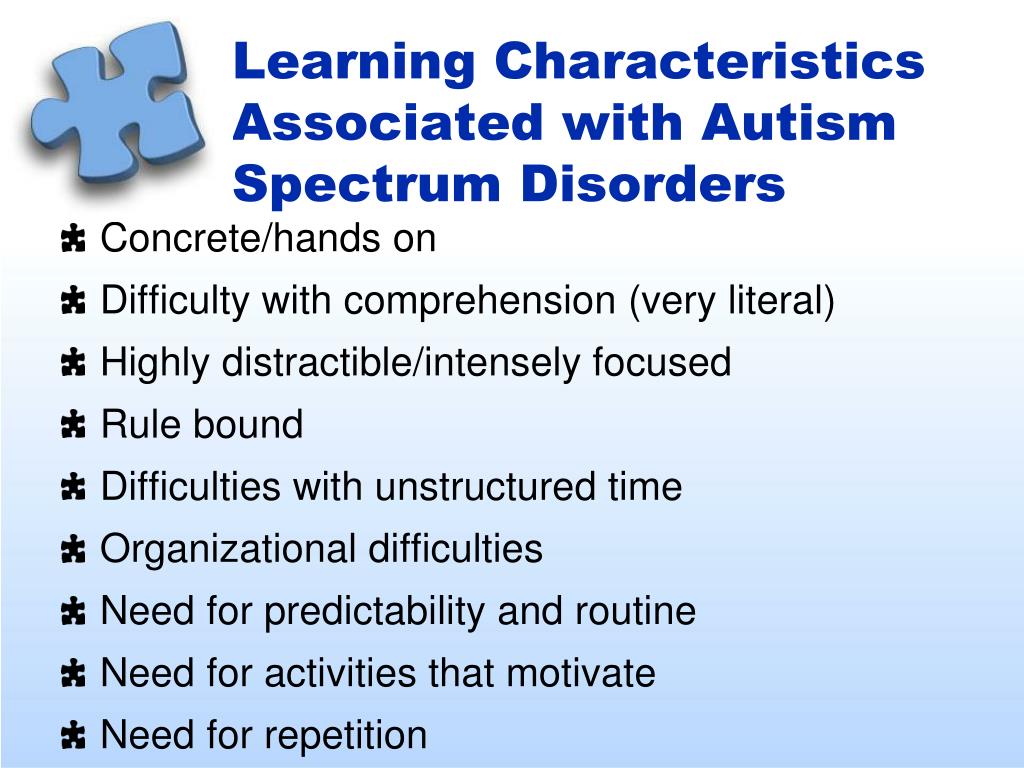 Learn about autism-related…
Learn about autism-related…READ MORE
Growing Up Autistic: How Do I Make the Leap to Adulthood?
Medically reviewed by Jeffrey Ditzell, DO
Each autistic adult is different. Learn how you can manage school, work, and more with whichever level of support works best for you.
READ MORE
Asperger’s vs. Autism: What Exactly Is the Difference?
Medically reviewed by Akilah Reynolds, PhD
Asperger's syndrome and autism (ASD) are different diagnoses, but if you've guessed that there's a lot of overlap, you're also right. You can learn…
READ MORE
How Is Autism Diagnosed?
Medically reviewed by Alexander Klein, PsyD
Autism is diagnosed based on shared behaviors and ways of communicating. But with that said, every person with autism is different.
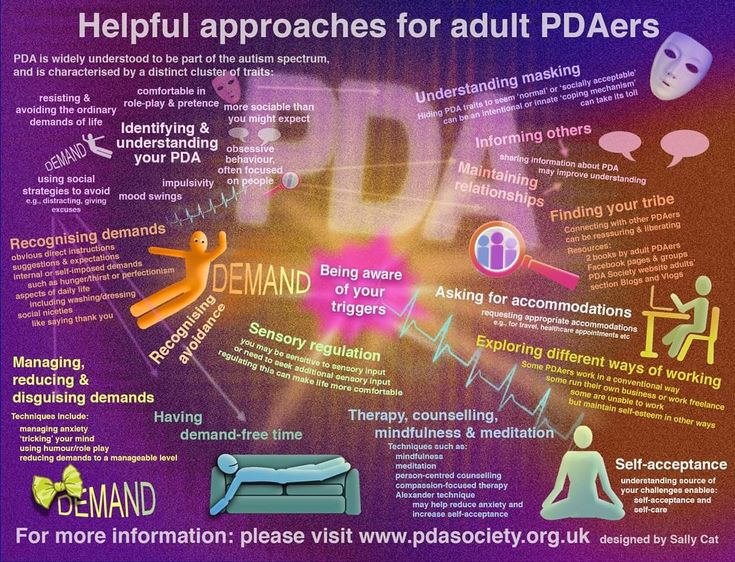 Learn about…
Learn about…READ MORE
Autism and Tics: What's the Connection?
Tics and Tourette's syndrome can both occur with autism. Understanding the connection can help you cope, you're not alone.
READ MORE
What to Know About Nonspeaking Autism
Autistic people who don't speak can still communicate in many other ways. We look at the signs, causes, and other communication options.
READ MORE
Are There Differences Between Autistic Boys and Girls?
Boys and girls present autism symptoms differently. Learning the difference may help you understand why girls are often underdiagnosed compared to…
READ MORE
Should You Consider Genetic Testing After An Autism Diagnosis?
Medically reviewed by Karen Richardson Gill, MD, FAAP
Autism has more than one cause.
 Genetic testing may be able to determine if your child’s autism is genetic, or caused by environmental factors.
Genetic testing may be able to determine if your child’s autism is genetic, or caused by environmental factors. READ MORE
Is Autism Preventable?
Factors, like exposure to air pollution, can affect your baby’s chance of being autistic. But you can be prepared by spotting the early signs to…
READ MORE
Autism
Autism- Popular Topics
- Air pollution
- Coronavirus disease (COVID-19)
- Hepatitis
- Data and statistics »
- News bulletin
- The facts are clear
- Publications
- Find Country »
- A
- B
- C
- D
- E
- E
- ё
- С 9000 X
- C 9000 WHO in countries »
- Reporting
- Regions »
- Africa
- America
- Southeast Asia
- Europe
- Eastern Mediterranean
- Western Pacific
- Media Center
- Press releases
- Statements
- Media messages
- Comments
- Reporting
- Online Q&A
- Developments
- Photo reports
- Questions and answers
- Update
- Emergencies "
- News "
- Disease Outbreak News
- WHO data »
- Dashboards »
- COVID-19 Monitoring Dashboard
- Basic moments "
- About WHO »
- CEO
- About WHO
- WHO activities
- Where does WHO work?
- Governing Bodies »
- World Health Assembly
- Executive committee
- Main page/
- Media Center /
- Newsletters/
- Read more/
- Autism
Key Facts
- Autism, also called autism spectrum disorder, is a diverse group of pathological conditions caused by the development of the brain.
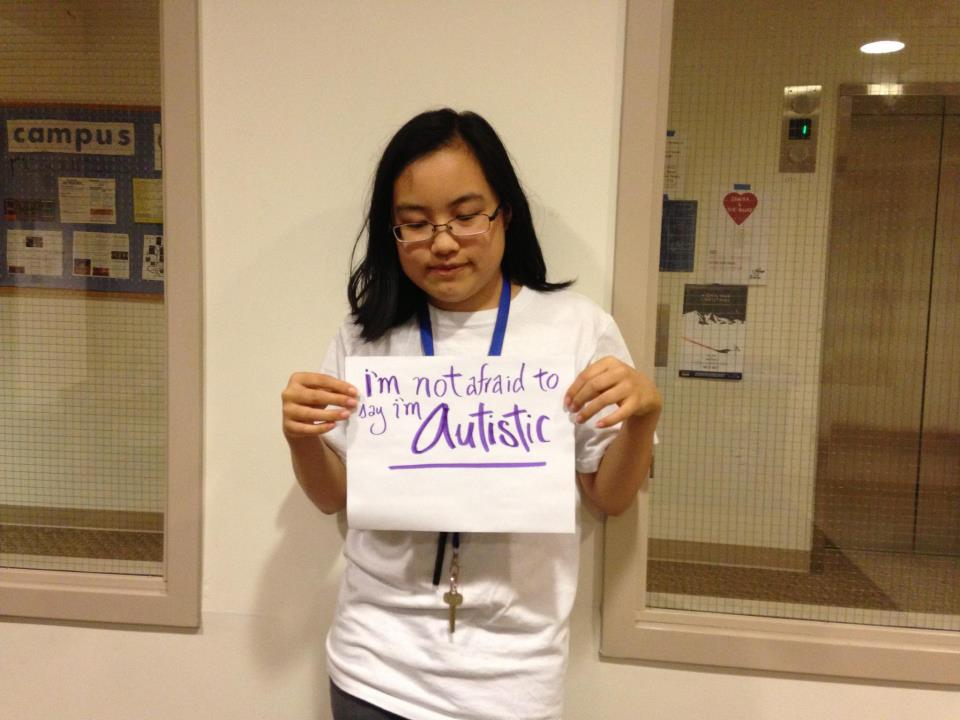
- Signs of autism can be detected in early childhood, but often it is not diagnosed until later in life.
- Approximately 1 in 100 children have autism.
- The abilities and needs of people with autism can vary and change over time. Some people with autism are able to lead independent and productive lives, while others become severely disabled and require lifelong care and support.
- Evidence-based psychosocial interventions can improve communication skills and social behavior, which positively affects the well-being and quality of life of people with autism and their caregivers.
- Care for people with autism must be accompanied by local and community action to make physical and social environments and relationships more accessible, inclusive and supportive.
Introduction
Autism Spectrum Disorders (ASD) are a group of different conditions.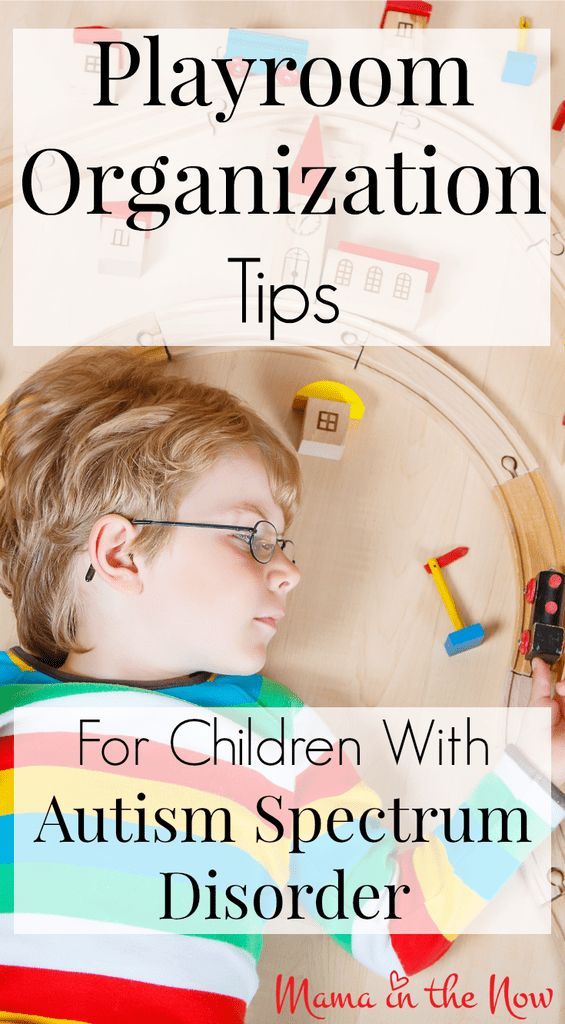 All of them are characterized by certain difficulties with social interaction and communication. Other features include atypical patterns of action and behaviors, such as difficulty moving from one activity to another, focus on details, and unusual responses to external stimuli.
All of them are characterized by certain difficulties with social interaction and communication. Other features include atypical patterns of action and behaviors, such as difficulty moving from one activity to another, focus on details, and unusual responses to external stimuli.
The abilities and needs of people with autism can vary and change over time. Some people with autism are able to live independent and productive lives, while others become severely disabled and require lifelong care and support. Autism often negatively affects educational or employment opportunities. In addition, for family members of people with autism, care and support responsibilities can often be a source of significant stress. Community attitudes and the level of support from local and national governments are important determinants of the quality of life of people with autism.
Signs of autism can be identified in early childhood, but the condition is often diagnosed at much later stages.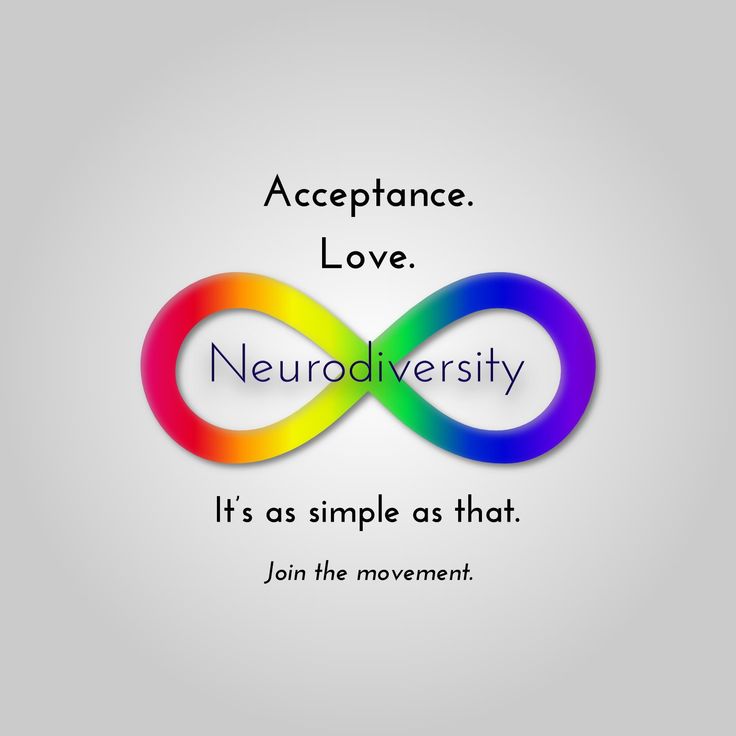
People with autism often have comorbid conditions and illnesses, including epilepsy, depression, anxiety, and attention deficit hyperactivity disorder, as well as behavioral problems such as sleep disturbances or self-harm. The level of intellectual abilities of people with autism varies in a wide range from severe cognitive impairment to a high level of intelligence.
Epidemiology
It is estimated that autism affects about 1 in 100 children worldwide (1). At the same time, we are talking about an average indicator, and the prevalence rates of autism recorded according to different studies vary widely. Nonetheless, according to some reputable controlled studies, the real numbers are much higher. The prevalence of autism in many low- and middle-income countries is unknown.
Causes
Available scientific evidence indicates many factors that may increase the likelihood of children developing autism, including environmental and genetic factors.
Available epidemiological data do not support a causal relationship between autism and measles, mumps and rubella vaccination. Past studies suggesting such a causal relationship have been many methodological problems were found (2), (3).
Similarly, there is no evidence that any childhood vaccine can increase the risk of developing autism. Evidence reviews on a potential association between the preservative thiomersal and aluminum adjuvants contained in inactivated vaccines and the risk of developing autism strongly suggest that vaccines do not lead to an increase in this risk.
Needs assessment and care management
A range of interventions, from early childhood and throughout life, can contribute to the optimal development, well-being and quality of life of people with autism. Timely evidence-based psychosocial interventions at an early age can improve the ability of children with autism to communicate and interact effectively with others. It is recommended to monitor the development of children as part of the planned provision of medical care to mothers and children.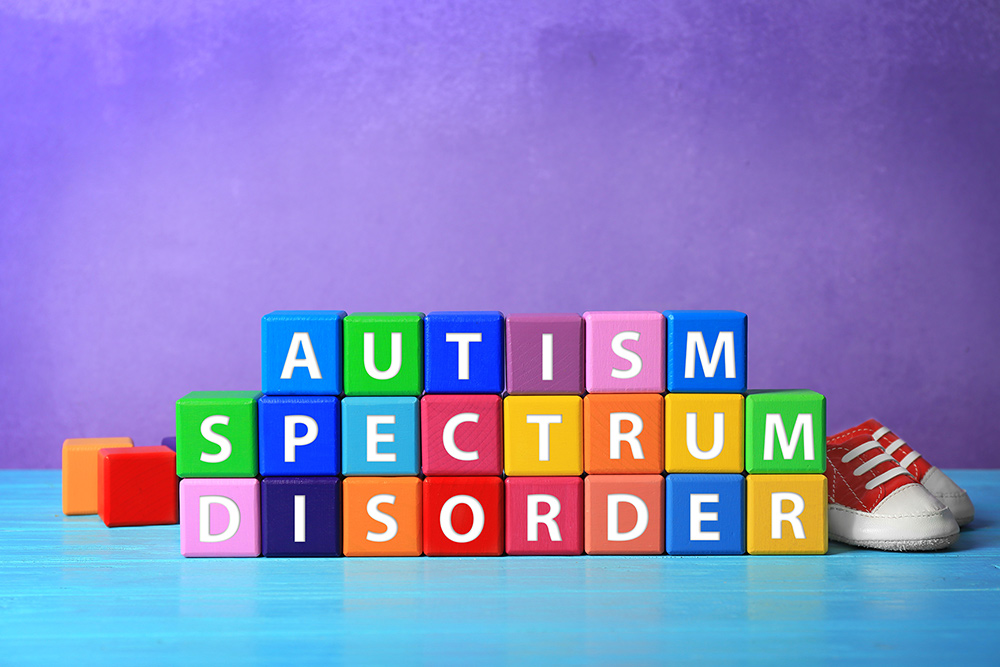
It is important that immediately after diagnosis, children, adolescents and adults diagnosed with autism and their caregivers have access to relevant information, referrals and practical support tailored to their individual needs. constantly changing needs and preferences.
The health care needs of people with autism are complex, requiring them to provide comprehensive services, including health promotion, care and rehabilitation services. Therefore, it is important to ensure cooperation with other sectors, in particular with the education system, employment and the social sector.
Interventions to help people with autism and other developmental disabilities should be planned and implemented with the participation of people with these conditions themselves. Caring for people with autism should be accompanied by local action. and at the level of society as a whole, in order to make the physical and social environment and relationships more accessible, inclusive and supportive.
Human rights
All people, including those with autism, have the right to the highest attainable standard of physical and mental health.
Yet people with autism often face stigma and discrimination: their health care and education rights are unfairly denied, and their opportunities to participate in society are limited.
People with autism may experience the same health problems as the rest of the population. In addition, they may have special health care needs related to autism and other related conditions. They can be are more vulnerable to chronic noncommunicable diseases associated with behavioral risk factors such as physical inactivity and poor diet, and are at greater risk of violence, injury and abuse.
People with autism, like the rest of the population, need affordable health services to meet their general health needs, including health promotion and prevention services, as well as acute and chronic disease management. However less than in the general population, the level of satisfaction of the medical needs of people with autism is at a lower level. These people are also more vulnerable in humanitarian emergencies. One of the common barriers is the insufficient level of knowledge and understanding of the specifics of autism by medical professionals.
However less than in the general population, the level of satisfaction of the medical needs of people with autism is at a lower level. These people are also more vulnerable in humanitarian emergencies. One of the common barriers is the insufficient level of knowledge and understanding of the specifics of autism by medical professionals.
WHO Resolution on Autism Spectrum Disorders
In May 2014, the Sixty-seventh World Health Assembly adopted a resolution on "Comprehensive and concerted efforts for the management of autism spectrum disorders", supported by over 60 countries.
The resolution calls on WHO to work with Member States and partner agencies to strengthen national capacity to address ASD and other developmental disabilities.
WHO activities
WHO and partners recognize the need to strengthen countries' capacity to promote the optimal health and well-being of all people with autism.
The main activities of WHO in this regard are:
- promoting the adoption of targeted measures by national governments to improve the quality of life of people with autism;
- develop recommendations for policies and action plans to address autism in the broader context of physical, mental, brain health and care for people with disabilities;
- help to empower healthcare professionals to provide appropriate and effective care for people with autism and achieve optimal health and well-being; and
- Promoting an inclusive and supportive environment for people with autism and other developmental disabilities and providing support to their caregivers.

WHO comprehensive mental health action plan 2013–2030 and World Health Assembly Resolution WHA73.10 "Global action against epilepsy and other neurological disorders" contain calling on countries to address significant gaps in the early detection, care, treatment and rehabilitation of people with mental and neurodevelopmental disorders, including and autism. The resolution also calls on countries to take action to meet the social, economic, educational and other needs of people living with mental and neurological disorders and their families, and to develop surveillance and related research activities.
References
(1) Global prevalence of autism: A systematic review update. Zeidan J et al. Autism Research 2022 March.
(2) Wakefield's affair: 12 years of uncertainty whereas no link between autism and MMR vaccine has been proven. Maisonneuve H, Floret D. Presse Med. 2012 Sep; French https://pubmed. ncbi.nlm.nih.gov/22748860/
ncbi.nlm.nih.gov/22748860/
(3) Lancet retracts Wakefield's MMR paper. Dyer C. BMJ 2010;340:c696. 2 February 2010 https://pubmed.ncbi.nlm.nih.gov/20124366/
Naked Heart Foundation: "People with autism can work in any field" | Articles
The All-Russian Public Opinion Research Center (VTsIOM), together with the Naked Heart Foundation, presented the results of a study on the awareness of Russians about autism spectrum disorders (ASD) and measures to support the employment of people with autism.
General awareness of Russians about autism
According to the results of the study, 77% of Russians know about ASD. At the same time, 55% of people have heard something and 22% are well aware of autism.
Among the six tested organizations that provide assistance to people with autism, half of Russians have heard of at least one such organization and about the same number do not know anything about them (48% and 52%, respectively).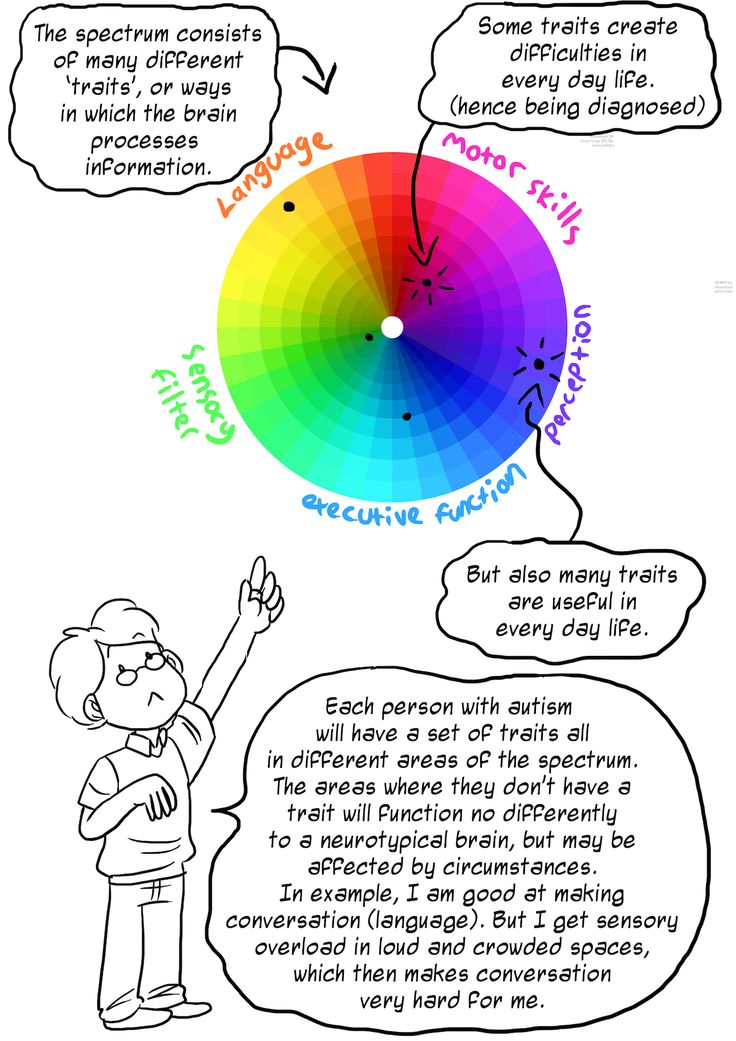
Among the respondents who have able-bodied people with autism in their immediate environment, awareness of organizations helping people with ASD is slightly higher: 58% have heard of at least one of them and 42% do not know any.
39% heard about the work of the Naked Heart Foundation , 10% heard about the Center for Autism Problems , 6% heard about the Anton Is Here Foundation, - 6%, and 4% heard about the Autism-Regions Association , about the Regional public organization "Contact" - 3%, about the fund "Exit" - 2%.
Surrounded by 12% of Russians there are people with autism of working age. According to respondents who have acquaintances of working age with ASD, more than half (57%) do not have work experience (only a third have work experience - 31%).
Russians think how to help people with autism find a job
), state structures represented by the social protection service (29%) and employment centers (20%).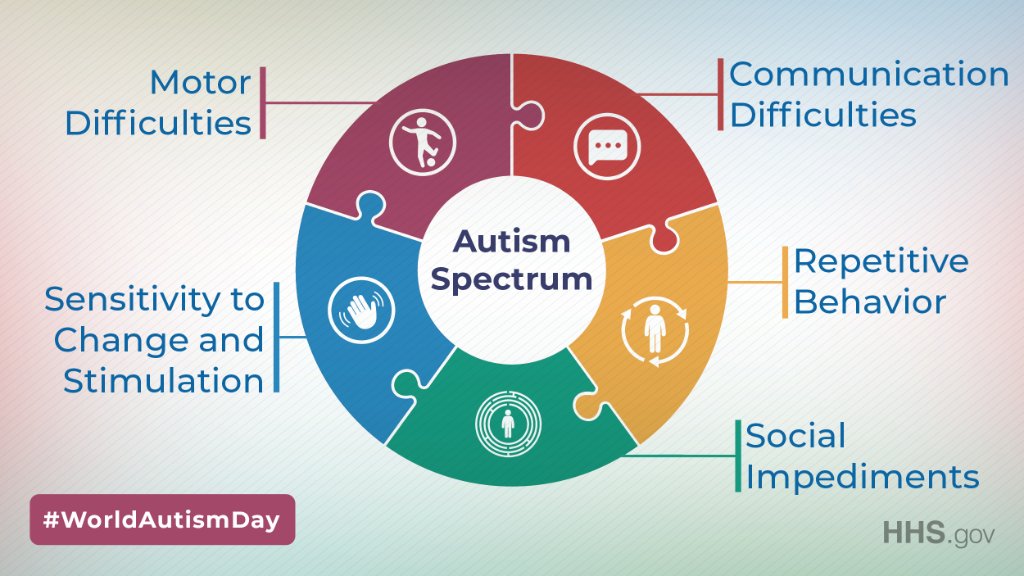 A less common perception is that families whose children have developmental disabilities (14%), educational institutions (9%) and social entrepreneurs (8%), employers (5%), recruitment agencies for staff search (4%). Every third respondent could not name those who help people with ASD (29%).
A less common perception is that families whose children have developmental disabilities (14%), educational institutions (9%) and social entrepreneurs (8%), employers (5%), recruitment agencies for staff search (4%). Every third respondent could not name those who help people with ASD (29%).
According to Russians, it is necessary to increase the chances of employment of people with autism through specific programs to help people with ASD: the creation of a system for preparing people with autism for work, their professional training and support in the workplace (40%), as well as through individual assistance in employment, adaptation and support in the workplace (36%).
In addition, the respondents believe that it is necessary to carry out information work about the employment of people with autism, both with employers (29%) and with society as a whole (36%).
Every third believes that the chances of employment for people with ASD will increase the introduction of tax benefits (33%). In the autism-informed group, the demand for all tested measures to improve the employment situation of people with ASD is higher than among the general population.
In the autism-informed group, the demand for all tested measures to improve the employment situation of people with ASD is higher than among the general population.
As fund « Naked Hearts » helps in solving the problem of employment of people with autism
In 2020, the Naked Heart Foundation launched the Assisted Employment project . It is aimed at solving the problems of developing inclusion in society by supporting young people with ASD and integrating them into society.
Foundation experts Tatyana Morozova and Svyatoslav Dovbnya said that the idea of the project was born thanks to effective foreign practices already existing at that time, which they wanted to use in Russia as well.
"...You can't learn a normal life in isolation."
Employment of people with autism and intellectual disabilities in general is a big problem, Naked Heart specialists say. According to WHO and the Ministry of Health of the Russian Federation, it affects more than 1% of the country's population. In particular, there are more than 820 thousand people with ASD.
“People with autism in Russia are exactly the same as in the rest of the world. They are sorely lacking in support. According to our research, many people have heard of autism, but this is mostly superficial knowledge. There are a lot of them compared to Western countries. We need proper information,” says Svyatoslav Dovbnya.
According to him, in order for a person with autism to have more chances for employment after 18 years, it is necessary to create inclusive conditions for him from childhood. This means that he needs to go to the same kindergarten or school with his peers, and not to a special isolated institution or be home-schooled.
“Until we get rid of stigmatization, education in segregated places, defectology and neuropsychiatric boarding schools, most people with ASD will not be employed. Because in isolation you can’t learn a normal life,” emphasizes Dovbnya.
Russian legislation does not provide for support during employment, the expert believes. “And supporting specialties are a huge contribution to the economy of any country.”
The Naked Heart Foundation's experience shows that people with autism are great at work. They can work in any field and in any position. But they have difficulties with soft skills - “soft skills”: for example, wake up on time, get ready for work, not be late, listen to criticism, participate in the discussion.
September 13, 2021
-
September 13, 2022
Event
Moscow, Ul Moskvorechye, d 7
COMMUNITURE OF THE INTERNITY OF THE VIDENTS OF THE INSTARTION OF THE AND INSTAL support. Adaptation specialists at work should explain how to do this. But so far they don’t know how,” says Dovbnya.
The goal of the fund is not to provide immediate employment for thousands of people with ASD in Russia.
